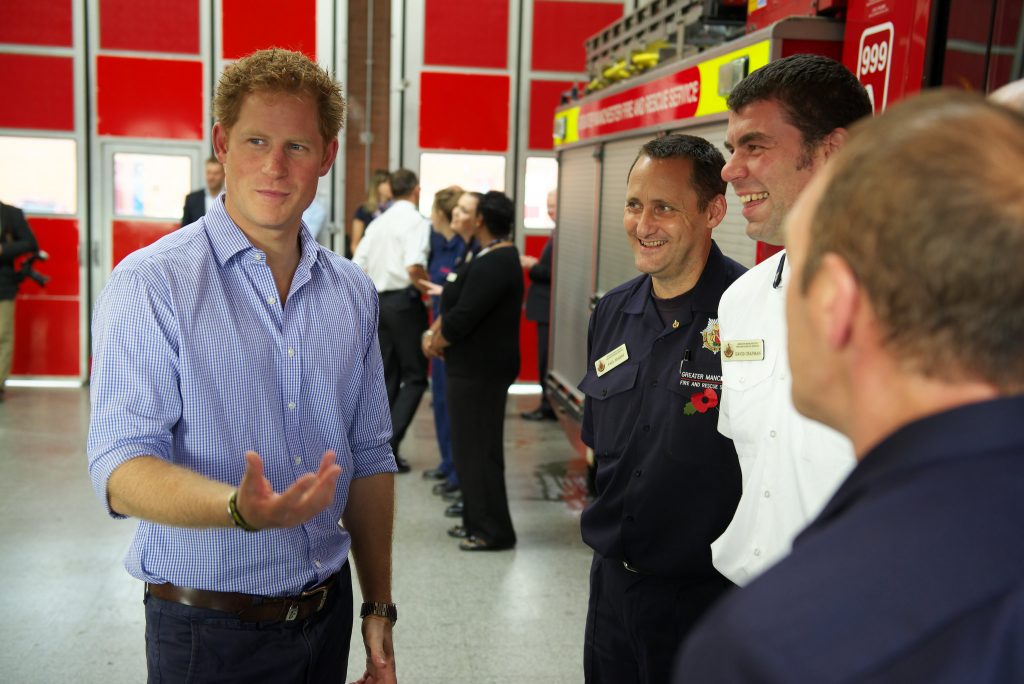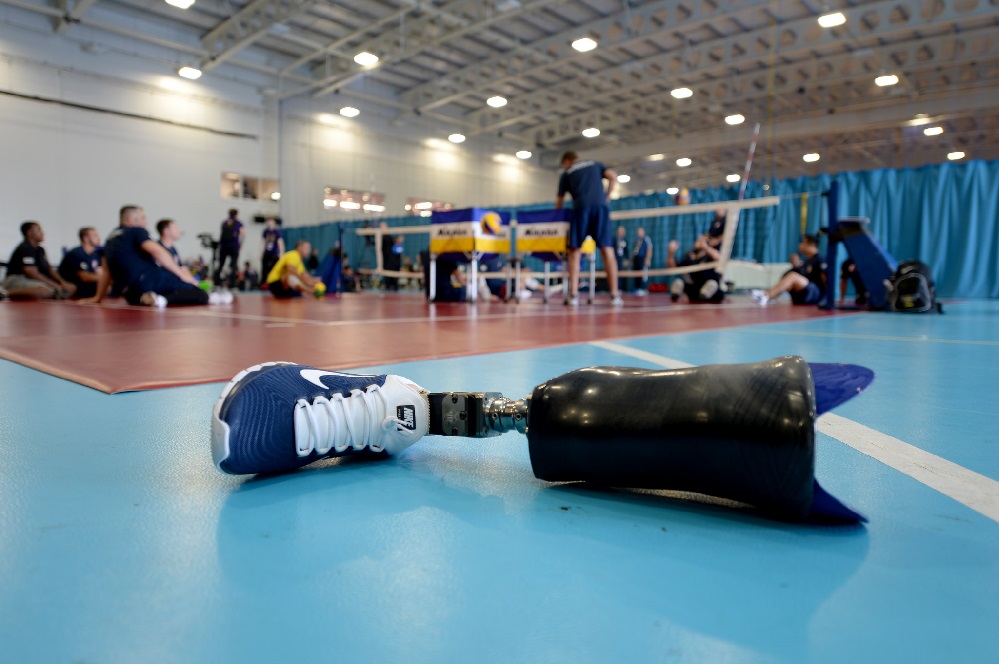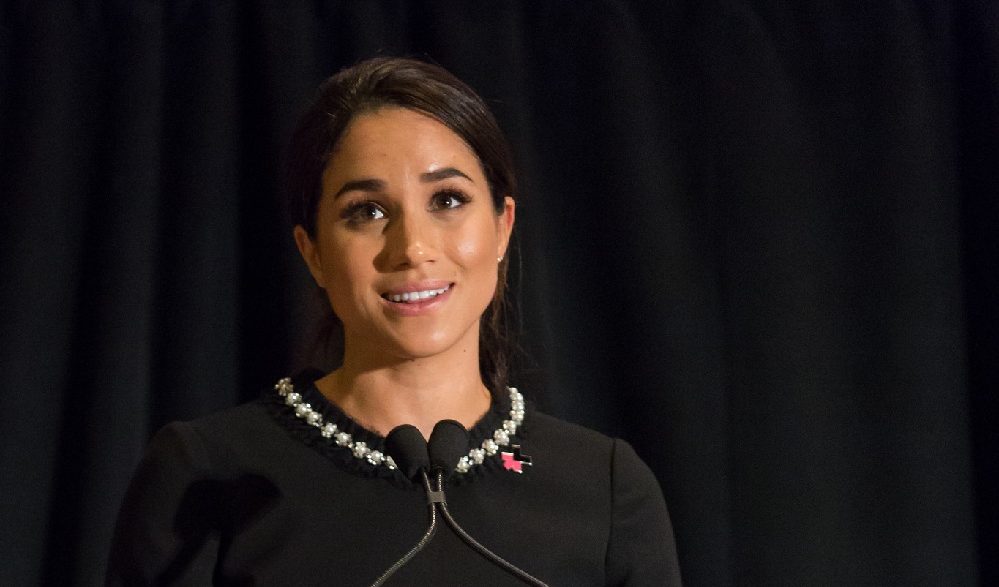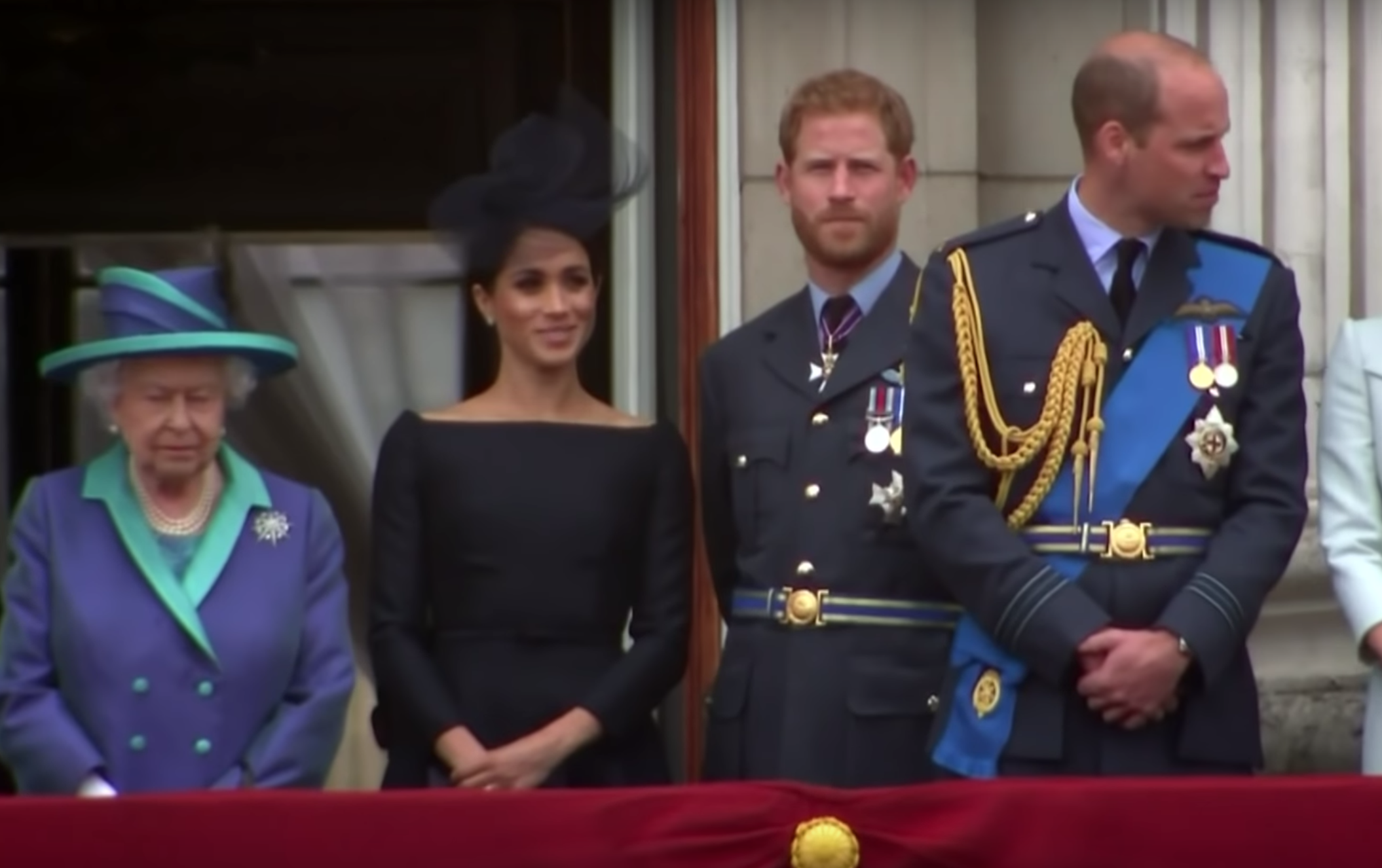The news that Prince Harry is set to marry the American Actress Meghan Markle has thrown the media on both sides of the Atlantic into a state of frenzied excitement.
Google searches for the pair have spiked more than ten times in the past 24 hours, with more than 7,000 articles written about the news.
It’s clear the engagement is interesting on a number of fronts, but what’s it got to do with human rights?
Mental Health
 Image Credit: Manchester Fire / Flickr
Image Credit: Manchester Fire / Flickr
The “Playboy” Prince proved he had a serious side with his work on mental health earlier this year, something mental health campaigners say has helped to kick the taboo around the subject.
Using his celebrity status to elevate the conversation around mental health issues, he spoke publicly about the effect his mother’s death had on his personal and professional life. He added that after shutting down his emotions for 20 years, he finally sought counselling to come to terms with Diana’s untimely death.
Together with the Duke and Duchess of Cambridge (his brother and sister-in-law no less) he helped set up the mental health initiative, Heads Together. This campaign seeks to tackle the stigma that is attached to mental health and ensure that people feel comfortable with their everyday mental well being, as well as supporting their family and friends.
Everyone has the right to the highest attainable standard of physical and mental health as part of their human rights. This is according to the International Covenant on Economic, Social and Cultural Rights – something that the UK has signed up to. By tackling the stigma attached to mental health, we remove the barriers to good health that stigma creates.
Physical Disability

Image Credit: The U.S. Army / Flickr
Harry has also been an strong advocate for people with physical disabilities. His experience in the armed forces brought him into contact with many people who had suffered serious injuries.
He believed that it was important to help empower veterans with disabilities and so he created the Invictus Games, which includes Paralympic athletics, swimming and cycling. The last games were held in Toronto where Harry was pictured watching the events with his then girlfriend, Meghan Markle.
Once again, equality is at the heart of all our human rights, and the Human Rights Convention specifically prohibits discrimination, something backed up by the Equalities Act.
Women’s Campaigner

Image Credit: UN Women / Flickr
Meghan Markle plays an ambitious paralegal in the American legal drama, Suits, and has used her celebrity to campaign on gender equality. She is a UN women’s advocate for Political Participation and Leadership. In a speech to the UN she said that it was imperative that women had a “seat at the table” and if that was not available “they need to create their own table!”
She has matched her words with action, visiting a refugee camp in Rwanda to meet with women leaders who lived there and spending time in India, visiting the slum communities in Delhi and Mumbai. She then wrote about her experiences and, in particular, the stigma surrounding menstruation which is prevalent in Africa, India, Iran and several other countries. In her words, the lack of access to proper sanitation “directly inhibits young women from pursuing an education…” therefore affecting their life chances.
Racial Equality
As the daughter of an African-American mother and Caucasian father, Meghan has also become a racial equality campaigner, citing the effect that being mixed race had on her early years and acting career. She has been outspoken about the state of race relations in her home country, especially the protests against police brutality in recent years.
So, there may be a lot of froth and bubble about the upcoming wedding of this couple from seemingly different worlds, but it would seem that they have one important thing in common: human rights.







